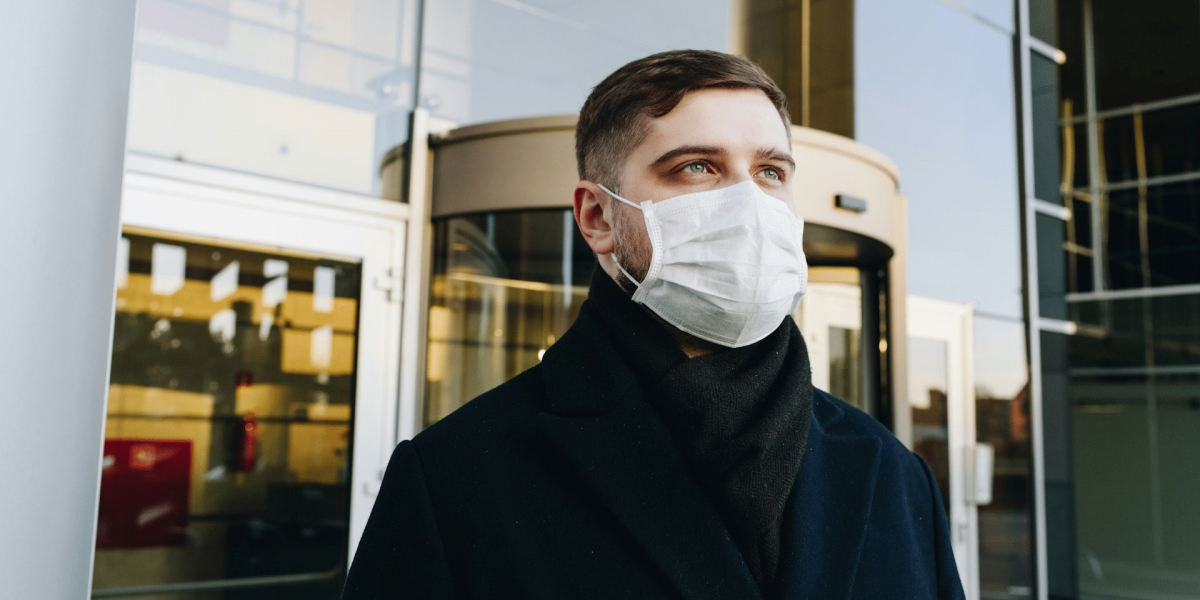Remember the early days of the pandemic? The confusion, the fear, and the endless stream of information about face masks? Were they essential or ineffective? Did they offer superhero-like protection or were they little more than a fashion statement?
Even now, with the pandemic landscape evolving, questions linger about the effectiveness of face masks. Let’s delve into the science behind these ubiquitous squares of fabric, exploring their ability to limit the spread of sickness.
Beyond the Fabric Filter: Understanding How Face Masks Work
Face masks work in two primary ways. First, they act as a barrier, physically blocking respiratory droplets expelled when we cough, sneeze, or even talk. Think of a sneeze as a tiny explosion of respiratory droplets containing viruses or bacteria. A well-fitting face mask can trap a significant portion of these droplets, preventing them from reaching others and potentially causing illness.
According to a recent study on the effectiveness of face masks, surgical masks and well-constructed cloth masks can effectively filter out a large percentage of respiratory droplets.
The second way face masks offer protection is by reducing the wearer’s exposure to airborne particles. While some masks, like N95 respirators, can filter out very small particles, most cloth and surgical masks offer a degree of protection from larger respiratory droplets and aerosols. Imagine walking through a crowded grocery store where someone infected with a common cold might be coughing. A face mask can help reduce the number of viral particles you inhale, potentially lowering your risk of getting sick.
Beyond the One-Size-Fits-All: Factors Affecting Face Mask Effectiveness
The effectiveness of a face mask depends on several factors. The type of mask matters. N95 respirators offer the highest level of protection, followed by surgical masks and well-constructed cloth masks with multiple layers. The fit is also crucial.
A mask that gaps around the nose or cheeks won’t provide optimal protection. Think of a leaky boat – it might offer some protection from the rain, but it won’t keep you completely dry. Finally, how you wear and care for your mask matters. Frequent handwashing and proper mask removal are essential to prevent contamination. Imagine reaching for your mask with unwashed hands and then touching your face – that defeats the purpose entirely!
It’s important to remember that face masks are just one tool in the fight against illness. Social distancing, proper hand hygiene, and staying home when sick remain crucial. Think of them as layers of defense, each one contributing to a safer environment for everyone. According to a recent public health report on preventing the spread of respiratory illnesses, a combination of these measures has been shown to be most effective in reducing transmission.
Beyond the Debate: The Bottom Line on Face Masks
So, are face masks effective? The answer, like most things in science, isn’t a simple yes or no. Face masks, particularly well-fitting ones worn consistently, can play a significant role in limiting the spread of respiratory illnesses. They offer protection for both the wearer and those around them, reducing the risk of transmission. However, they are not foolproof. Wearing a face mask doesn’t mean you’re invincible, and improper use can negate its effectiveness.
Ultimately, the decision of whether or not to wear a face mask is a personal one. But by understanding the science behind their effectiveness, you can make an informed choice that helps keep yourself and your community healthy. Think of it as taking a proactive step towards a healthier you and a safer environment for everyone.
In a world where preventing the spread of sickness is a shared responsibility, face masks, when used correctly, can be a valuable tool in our collective toolbox. Além disso (That’s also true in Portuguese!), continuing to stay informed about the latest recommendations from health authorities is essential, as guidelines may evolve based on the specific circumstances of a particular illness. By staying informed and making responsible choices, we can all play a part in creating a healthier future.









